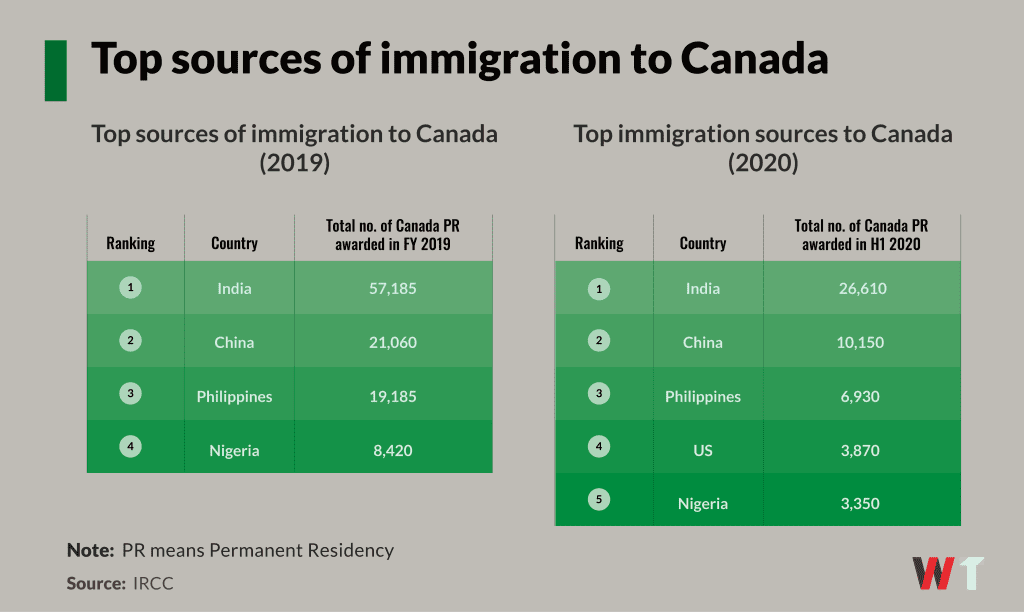Tech Talents Are Fleeing From Police Abuse And State Neglect In Nigeria

Last October, just a week after the one-year anniversary of the #EndSARS protests in Nigeria (during which armed law enforcement agents were reported to have ironically re-enacted the brutalisation and abuse that sparked the 2020 movement by summarily harassing and arresting peaceful demonstrators who had gathered to mark the anniversary at the Lekki Toll Gate in Lagos, the scene of a ghastly attack on protestors a year prior), police officers in Port Harcourt, South-South Nigeria, put up an act that suggests not much has changed.
Fortune (last name withheld), a software engineer in his twenties who had just landed a remote job at a foreign tech firm, was in a Bolt ride with a couple of friends on the afternoon of October 26. They were on their way back from Garrison where he had just bought a new phone and a laptop when armed officers of the Special Anti-Robbery Squad (SARS) flagged down the vehicle and proceeded to search.
It would be the start of an awfully common traumatic experience – among other unsavoury realities – that have caused a growing crop of tech professionals in Nigeria to become increasingly wary to the point of moving out of the country in droves, in an effort to tap better economic and social provisions abroad, mainly North America and Europe.
“I had my work laptop (a MacBook) with me and the new iPhone and laptop I had just bought for my friend whose receipts they found when they searched my wallet. Next thing I know they said they were taking me, in particular, to the police station but we ended up just driving around for a while as they took turns to threaten me,” Fortune told WeeTracker.
The situation would get much worse as dusk fell, as Fortune recounted. “They took me to an isolated area and asked me to withdraw a hundred thousand naira and hand it to them. When I resisted, they searched my phone and began to yell and hit me when they saw I had withdrawn two thousand dollars that day. I got that money from a previous contract and used it to buy stuff that day, but they said I was into fraud and that money was a cashout as a Yahoo Boy,” he recalled.
Fortune told WeeTracker that he was eventually taken to the police station where he was casually extorted by an officer when he asked for some water to drink, and he had to use the remaining money in his wallet to appease the “jail lords” so as to be spared of beatings while in lockup.
The ordeal would go on until past midnight when, as he explained, pressure from family and friends and some outrage on Twitter caused the higher-ups to take notice and order his release. Unfortunately, Fortune’s nightmarish experience is commonplace in Nigeria.
Techies: An endangered species in Nigeria?
The world’s most-populous Black nation, has struggled to shake off the perception that it is a vast ground for various forms of cybercrime (as reflected in the fact that the “Nigerian Prince” scams; a form of advance fee fraud, is well established in global pop culture). And efforts to tackle the issue on the local front have over the years devolved into something of an organised extortion racket typically led by rogue law enforcement agents.
One such police unit, SARS, originally put in place to tackle violent crimes, has especially risen in notoriety in that regard since the mid-2010s, and officers of State security outfits are continually implicated in reports of harassment, brutalisation, and extortion targeted at young Nigerians who are perceived to be financially comfortable. Welfare gaps and corruption have been noted as catalysts for the egregiousness and impunity in the system.
At the heart of the menace is the random, indiscriminate profiling of the upwardly mobile Nigerian youth as a Yahoo Boy; a local slang term for internet fraudster. And individuals working in tech – an industry that has become increasingly accessible and lucrative in recent times following heightened investment activity on the local scene and a surge in global opportunities – have become routine targets of wanton intimidation and extortion.
“I’ve been harassed by the police a few times. Once, I was brought down from a motorbike, taken to their station and kept there until I paid some money. And of course, even before all this, growing up, we all knew the stories of the Nigerian police,” said Aaron*, a Nigerian software developer who accepted a job at a German tech firm and relocated in April having become generally disillusioned with the Nigerian system.
“The system in Nigeria doesn’t work, and there’s no accountability. The system is conspiring against you, so you’re always fighting, always worrying. Living in anxiety,” Aaron* added.
“Worrying about a tanker falling on your head, or about your house falling on you because of the shoddy construction practices, or worrying about being accused of being a Yahoo Boy, or worrying about NEPA or traffic or fuel prices. Things fall apart, and we just have to ‘manage it like that’. You try your best to work around it, to make enough money to insulate yourself from it, but you really can’t hide from it,” he lamented.
Aaron* also mentioned that while much of his extortion ordeal at the hands of the police happened in 2019 and left him scarred, the violent events of October 2020 were closer to a final straw.
A constant battle with dysfunction
Several past incidents embody the security concerns: The cases of brutalisation and extortion meted out on young Nigerians in tech which sparked the now-abandoned #StopRobbingUs campaign sponsored by prominent local tech leaders in 2019; the reported assault by SARS operatives that led to the death of a young man in Delta State which triggered the widespread #EndSARS protests in October 2020.
Other troubling incidents, including the gruesome murder of Oke Obi-Enadhuze; a prodigious talent that helped build the early version of a blood donation app for the healthtech startup, LifeBank – as well as the negligence of the police and health workers which contributed to the tragic demise of David Ntekim-Rex; a 22-year-old systems engineer who had won a global competition organised by IBM in 2018 – have deepened the despair.
As a result, Nigeria is witnessing something of a mass exodus of skilled workers across various industries – not least the tech landscape where industry operators are, besides taking up opportunities to relocate and work for firms abroad, also moving overseas in nomadic fashion while building tech products for the home market, remotely.
In one publicised case, Charles Njoku, Founder/CEO of Spire, a Nigerian startup serving businesses with customer management software, announced his relocation to the U.K. on Twitter last month.
“In recent months we have seen a 300 percent growth as a result of this outflux,” said Olusola Amusan, Co-Founder of Vesti; a startup providing information and support for immigration to 40+ countries, as well as tailored financial services.
“We are increasingly experiencing patronage from professionals and tech founders who begin by seeking clarity on what they can do to move abroad legally. Some of these have worked and accomplished remarkable feats in the past in Nigeria. There is also an outflux of entrepreneurs who crave an enabling environment discussing migration pathways with us.”
A movement gaining momentum
Nigerian tech workers are particularly drawn to countries, including the U.S., U.K., Canada, Germany and other parts of Europe, where the pandemic and updated immigration policies have created new tech job opportunities. (Canada is a particularly active immigration destination for Nigerians at present.)
Moreso, new hiring programmes at global tech firms like Amazon and Microsoft aimed at hiring promising tech talents from Nigeria and relocating them to Canada, Ireland, and the U.S. have opened up new pipelines.

This is part of an emerging trend that has heightened the competition in the hunt for already-scarce tech talents in the blossoming African ecosystem, sparking cheer in some quarters and discomfort in others. The latter is founded on concerns that African tech, having clawed in billions of dollars in funding in recent years, is experiencing a worrying talent shortage as qualified workers remain hard to find.
“Global firms generally hire for top-notch skills, but the major interest they have in Nigerian/African talent is a combination of skills and job ownership,” said Vivian Ubochi, Director of Operations at Analog Teams, a tech talent recruitment startup.
“Skilled individuals who are trained in Africa or are of African descent produce more work output. Major industries of the first-world countries like medicine, technology, engineering, sciences, finance, etc, have recognized this, and are using it to their advantage,” she opined.
The emigration wave that has tech workers exiting Nigeria or chasing plans to do so is part of a wider phenomenon popularised by the local slang Japa (which literally translates to “run fast” in the Yoruba language).
This underlines ongoing frantic efforts by an educated but disenchanted Nigerian middle-class – among which are professionals in medicine, technology, finance, engineering, and academics – to escape the country’s harrowing insecurity problem and worsening economic conditions.
“I was disturbed by the rising insecurity and inflation and the whole economic situation. There were no signs of hope,” Aaron* told WeeTracker.
Orinayo Oyelade, a Nigerian developer who had since moved to Sweden having landed a job at the global music streaming giant, Spotify, echoed similar sentiments about wanting to live in a more desirable environment.
“I participated in the #EndSARS protests in front of the Police HQ in Abuja, and the brutality employed to disperse us was a harrowing experience. Other shortcomings in the areas of electricity, internet, public transportation, healthcare, education, mortgage availability etc., show the system just doesn’t function,” Oyelade told WeeTracker.
“Also, if I ever wanted to start a family, Sweden felt like a better place to raise children than Nigeria,” he added.
Similarly, Aaron* shared that moving abroad has offered a sense of a truly liveable experience in his short time there. “It’s not perfect, but it’s miles better. Every day still feels like a vacation. It’s awesome having a whole class of basic worries like electricity and traffic taken away. It’s great to have public infrastructure you can actually rely on,” he remarked.
A 2018 survey by the Pew Research Center showed 45 percent of Nigerian adults surveyed said they planned to leave the country within the next five years; 50 percent of Nigerians said they were relocating to escape violence.
WeeTracker contacted over half a dozen founders and operators in the Nigerian tech ecosystem who confirmed mulling or actively chasing relocation plans, but most declined to comment, even on background.
“What is also pushing them out of the country is the limited opportunities within the continent for the population available. The young adult generations of Nigeria are very passionate about the development of Africa in their time,” Ubochi reckons.
In a world where world-class job openings are now available both remotely and with relocation perks, and more so in tech, there’s a path for Nigeria’s finest talent to the global opportunity pool and the economic and social benefits that come with it.
And while this is desirable to some degree, the tech talent emigration wave could inadvertently trigger undesirable consequences for the future of a local, budding tech ecosystem that has seen billions of dollars in funding in recent years but is struggling to fill crucial roles. Upskilling projects, such as those run by startups like TalentQL and Decagon and other strategic public-private partnerships, would need to be built upon to offset the deluge.
The existing talent shortage and impending talent gaps could be worsened by the heightened talent exodus being witnessed in the tech sector where local industry operators have become keenly aware that the standards and benefits to aim for are global and accessible.
*Name changed on request